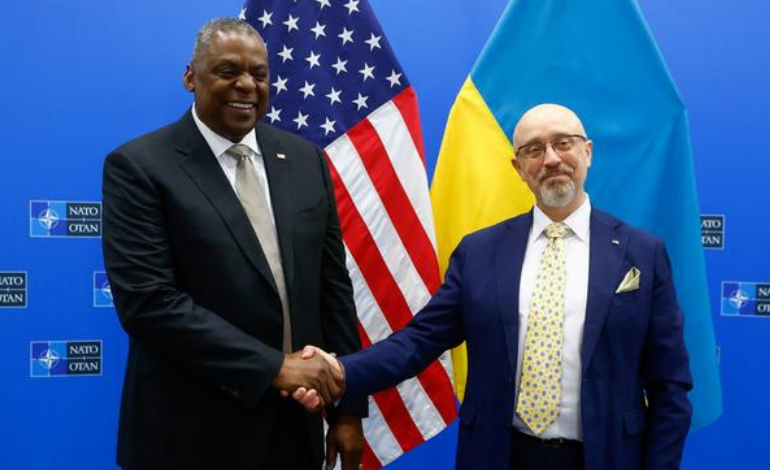
In response to the Russian assaults, Kyiv has increased its requests to its Western partners to strengthen its air defence capabilities.
At a gathering of nations that are arming Ukraine on Wednesday, NATO Secretary-General Jens Stoltenberg said that stronger air defence was required to shield Ukrainian cities from an escalation in Russian missile assaults.
"We will address how to ramp up support for Ukraine, and the top priority will be more air defence for Ukraine," Stoltenberg said.
Oleksii Reznikov, Ukraine's defence minister, will attend both the NATO summit and the gathering of the more than 50 nations that make up the US-instigated Ukraine Contact Group.
The United Kingdom has announced that it will contribute cutting-edge air defence equipment that can take down cruise missiles. It stated that Amraam rockets will be deployed in conjunction with Nasam rockets but did not specify how many would be shipped to Ukraine.
“I have authorised the supply of Amraam anti-aircraft missiles to Ukraine. These weapons will help Ukraine defend its skies from attacks and strengthen their overall missile defence alongside the US Nasams,” said Ben Wallace, the UK defence secretary.
Even though the arrangements for the German delivery preceded the recent Russian assaults, Germany delivered the first of four IRIS-T air defence systems to Ukraine on Tuesday. According to German Defence Minister Christine Lambrecht, three additional IRIS-T systems will be delivered in 2019.
On Tuesday, the US Department of Défense announced that it will be sending Ukraine the first two cutting-edge NASAMS anti-aircraft systems in the upcoming weeks.
The demand for integrated air and missile defence system from Ukraine caught everyone's attention, and Milley promised that allies would work to accommodate it. The threat posed by Russian aircraft and missiles would be eliminated by this system, which would be composed of short-range, low-altitude systems, medium-range, medium-altitude systems, and long-range, high-altitude systems.